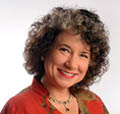After more than 30 years of teaching, here's what I know: Students perform better if they do something else in addition to being a student.
Want to help your child succeed in high school and college? Make sure your kid has a job.
Not an unpaid internship. Not a volunteer position. Not a three-week trip to an exotic but depressed locale where he or she will be inoculated against the pervasive geopolitical and historical debasement of third-world nations and believe that if only "they" had organic farms and dental floss everything would be cool.
Insist your offspring get a paying job. You might have one of those yourself. Resist the impulse, however slight, to get your child a position at the same establishment. Sure, it'll save on gas, but think how much more you'll be spending on therapy.
Make it clear that your child needs to earn actual U.S. currency by getting a paycheck based on an hourly or weekly wage after passing through the rigorous process of finding employment — preferably secured not through a family member — and proving himself or herself worthy of keeping the position.
Doing chores at home will not work. Nobody will ever, under any circumstances, give you money as an adult to complete the tasks you should be completing on your own. Nobody in the real world will ever give you 20 bucks to do your own laundry or wipe your hair out of the sink.
Baby-sitting for other families, pet-sitting for other people's pets, raking lawns and shoveling driveways are good for those who are too young to secure working papers.
Over 18, young adults should be learning how to handle retail from the selling side or handle food from the serving side.
In fact, the very phrase "young adult" should once again be more than a way to describe books.
They can work at a car wash, movie theater, supermarket or warehouse. They can start pumping gas, waiting tables, delivering pizza, mopping floors or asking "Whole wheat or sourdough?" when they're preparing sandwiches on the food-service line.
They should get a grip on taxes and Social Security, open a checking account in their own name and have a certain amount of autonomy over spending what they earn. They will then learn what things cost by purchasing them with their own dough.
How will these practices make them better students? They'll wake up at a scheduled time and get their acts together in order to show up for work before their shift begins while wearing neither clothes nor an expression that looks as if it's just emerged from a laundry mangle.
They'll learn that they're not the only important people in the room and that the world isn't intrigued by their drama. They'll learn cooperation, teamwork, time management and what it's like to fall asleep as soon as their heads hit the pillow at the end of a long day.
They'll learn new tasks and if they don't learn them quickly or efficiently enough, they'll either fail or they'll try harder. It isn't necessary to pay a university $23,000 in tuition for the lesson of humility. Pizza Hut will teach it to them for free.
Why are students who have experience working outside academic settings often more impressive than those who've been insulated, cosseted and pampered? They've learned how to focus their time and efforts on a variety of tasks. They're adept at self-discipline and self-reliance. They take responsibility for their own actions and they're not as self-indulgent, self-obsessed and self-satisfied as some of their more entitled peers.
Young people who have held jobs are better students because they know they can't do everything at the last minute, all at once or erratically. They whine less, they make fewer excuses and they don't expect something for nothing — like, for example, an acceptable grade for unacceptable work. They wouldn't expect to get paid for showing up every day if they didn't do anything and yet some of their more spoiled counterparts, shockingly enough, actually believe they should get a "pass" in a course simply because they showed up for every class.
Their academic lives will benefit, not suffer, from having a job even as they have to study.
Give your children a gift: Encourage them to work — and keep working.
Gina Barreca
The Hartford Courant
(TNS)
Comment by clicking here.
Gina Barreca is a columnist for The Hartford Courant.



 Contact The Editor
Contact The Editor
 Articles By This Author
Articles By This Author